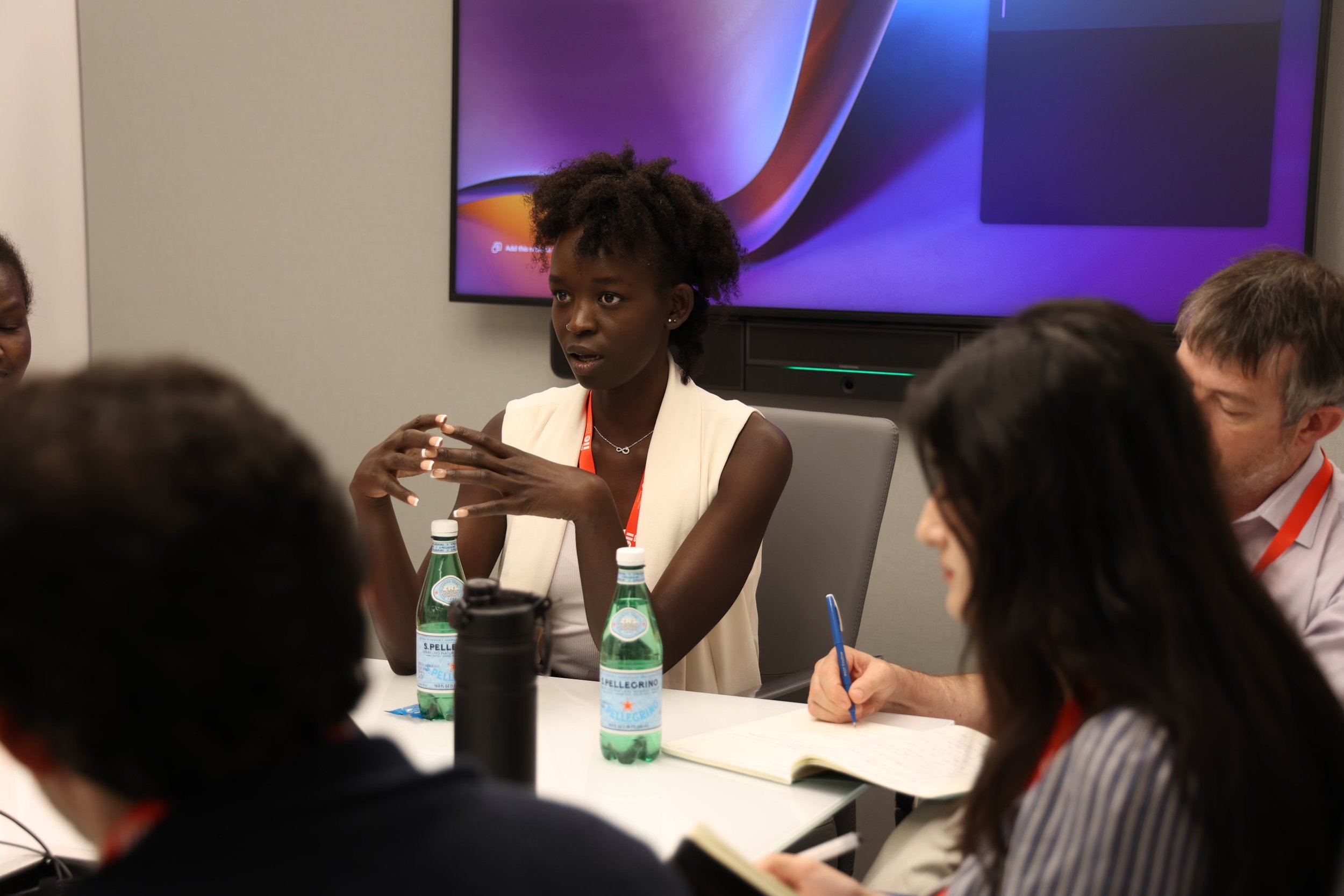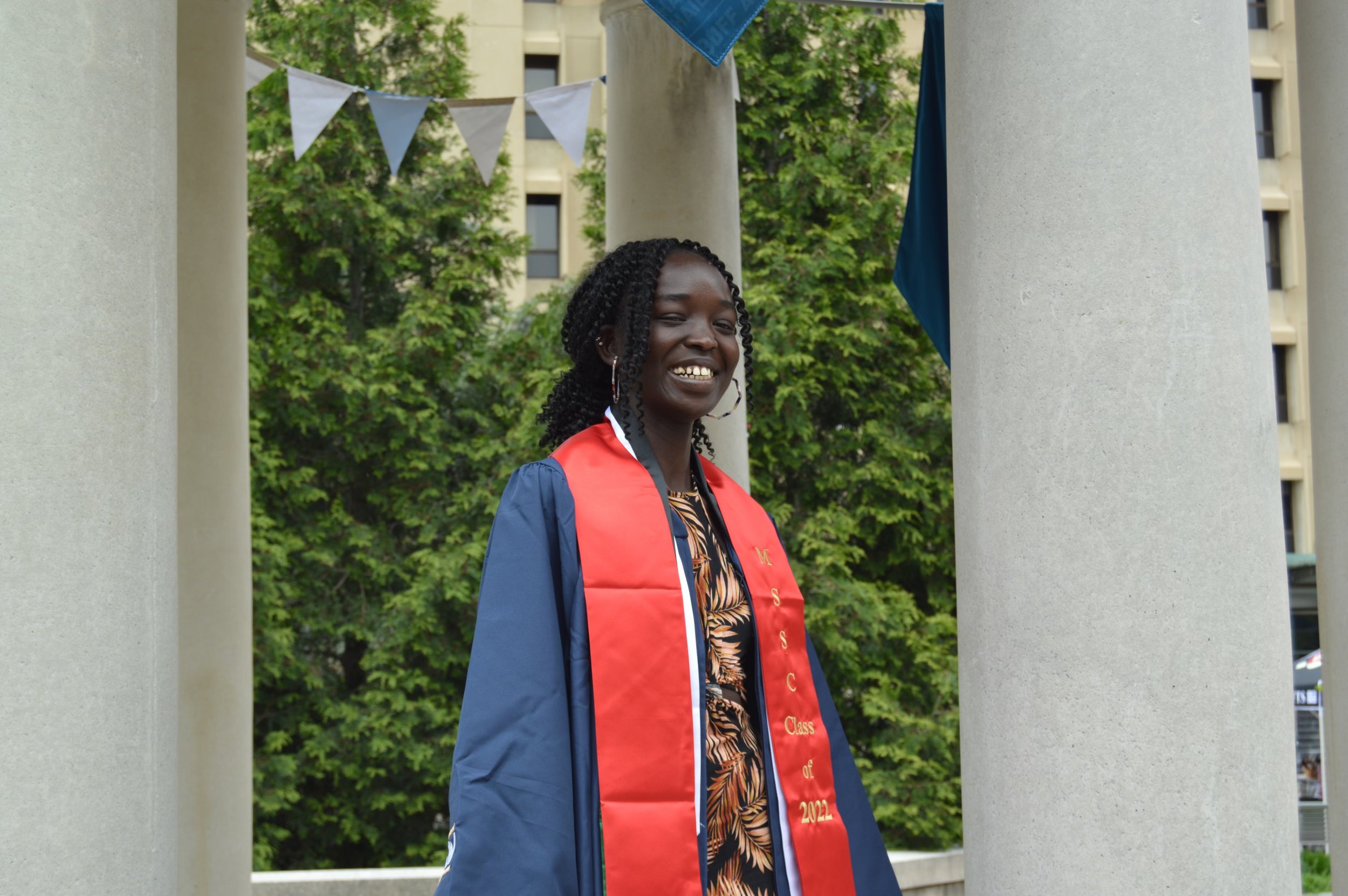Meet the Founders: Q&A with Diing Manyang
In this inspiring Q&A, we sit down with Diing Manyang, co-founder of Elimisha Kakuma, to discuss her journey from studying Systems Engineering to founding an organization that’s transforming lives in Kakuma Refugee Camp. Diing shares how her love for STEM and economics led her to systems engineering, how she applies those skills in her career today, and what motivated her to help create educational opportunities for refugee students. Her story is one of resilience, determination, and the power of education to spark meaningful change!
Why did you choose to study Systems Engineering?
Systems Engineering is an interdisciplinary engineering degree that focuses on restructuring organizations to function more economically and efficiently. l chose this major because I wanted flexibility with my career. I had always loved STEM and economics and deciding which of the two to study was a tough decision to make. My desire to attain practical skills and at the same time enjoy the application of the concepts combined with economics led me to discover Systems Engineering, which would allow me to attain my two interests.
What was your favorite thing about your program?
My favorite thing about the program was how practical the discipline was. As opposed to many other majors that were theoretical, I wanted to be in class and produce something tangible out of the theories taught in class. Systems engineering allowed me to do this by working closely in a team where we produced deliverables of in-class projects assigned through rapid prototyping. It emphasizes on the importance of leveraging what each person was good at and make impactful contributions. It wasn't a surprise that my senior capstone won several awards including publishing the paper with IEEE.
How have you applied systems engineering to your day-to-day life after graduating? And, how has it helped you more broadly?
In my current role, which is not engineering, I've worked with cross-functional teams from developers, testers, operations, and financial advisors. This setup allows me to properly navigate working with people from different cultural/educational backgrounds as well as at senior levels. Also, engineering is all about finding solutions to problems impacting organizations or society at large. The skill sets obtained through the program have allowed me to navigate and embrace ambiguity as part of learning especially when handed projects that I am not familiar with. As I work now in finance, an entirely different subject I did not learn in college, my degree allows me to embrace all challenges it comes with. Systems Engineering degree prepared me with the right technical skills and the ability to quickly learn and take initiative with unfamiliar subjects and technologies.
What would you say to other refugees who wish to study any type of engineering?
Refugees have a level of resilience and grit that allows them to do anything they put their minds to, especially when afforded the opportunity. So my advice would be to ask themselves three things, at least that's what has always helped me; Is this something I am interested in, will I be good at this thing, and will this thing give me the future/lifestyle I want to live? If all the answers are yes, then I would say go for it and be prepared for a few nights of challenges when those assignments won't make sense. Also, seek help from professors and friends in case of any struggle in class, and always remember that almost everyone in class just understands as much as you do. The difference is usually in reaching out, and asking questions to your professors. This will make a huge difference in what you gain at the end of your graduation.
How did your experiences at your university or program inspire you to start Elimisha Kakuma?
I think Elimisha Kakuma was an idea that was already born before starting college. As part of a similar gap year program, we had already seen the disparity in the number of refugees who were getting opportunities to get into colleges. For instance, Dudi, one of our co-founders, and I were the first two pioneers to be taken from the Kakuma Refugee camp out of over 100 students who applied for those 2 spots. We were lucky and grateful that we had such an opportunity, but did we want this chance to end with us? No. This is why Elimisha Kakuma's mission is to create a ripple effect of globally educated refugees who want to give back to their community and improve the lives of their loved ones
If there is one thing you’d wish people to know about refugees in higher education or in engineering, what would it be?
We are incredibly smart and we deserve every opportunity that students around the world have. None of the refugee students ever chose to be refugees, so it's unfair to solely measure their worth by their title ‘refugee.' Giving up is never in their vocabularies and they will do everything they can to leverage every opportunity given to accomplish all the goals and dreams they have for themselves.




